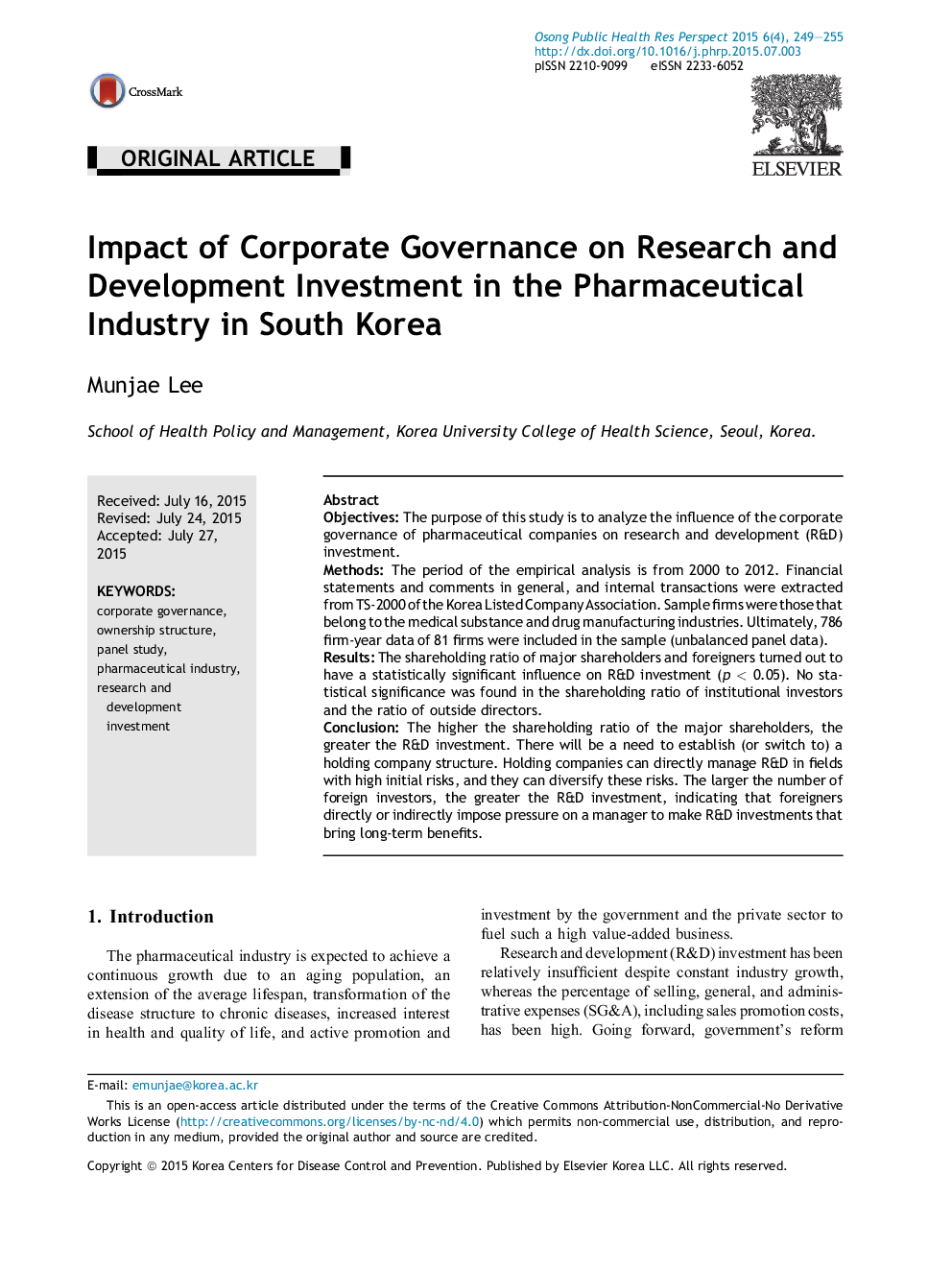| Article ID | Journal | Published Year | Pages | File Type |
|---|---|---|---|---|
| 4201916 | Osong Public Health and Research Perspectives | 2015 | 7 Pages |
ObjectivesThe purpose of this study is to analyze the influence of the corporate governance of pharmaceutical companies on research and development (R&D) investment.MethodsThe period of the empirical analysis is from 2000 to 2012. Financial statements and comments in general, and internal transactions were extracted from TS-2000 of the Korea Listed Company Association. Sample firms were those that belong to the medical substance and drug manufacturing industries. Ultimately, 786 firm-year data of 81 firms were included in the sample (unbalanced panel data).ResultsThe shareholding ratio of major shareholders and foreigners turned out to have a statistically significant influence on R&D investment (p < 0.05). No statistical significance was found in the shareholding ratio of institutional investors and the ratio of outside directors.ConclusionThe higher the shareholding ratio of the major shareholders, the greater the R&D investment. There will be a need to establish (or switch to) a holding company structure. Holding companies can directly manage R&D in fields with high initial risks, and they can diversify these risks. The larger the number of foreign investors, the greater the R&D investment, indicating that foreigners directly or indirectly impose pressure on a manager to make R&D investments that bring long-term benefits.
